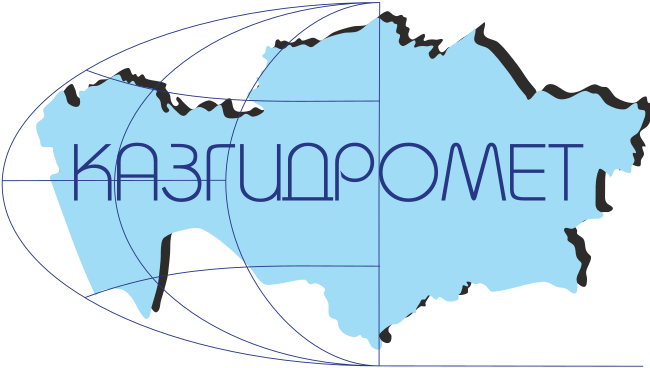ШЫҒЫС ҚАЗАҚСТАНДАҒЫ РЕКРЕАЦИЯЛЫҚ ТАБИҒАТ ПАЙДАЛАНУДЫҢ ҚАҚТЫҒЫСТАРЫНЫҢ КЕҢІСТІКТІК ҚҰРЫЛЫМЫ
DOI:
https://doi.org/10.54668/2789-6323-2025-116-1-91-99Кілт сөздер:
рекреация, туризм, табиғат пайдаланудағы қақтығыс, ГАЖ, қашықтықтан зондтауАңдатпа
Шығыс Қазақстандағы таңдап алынған модельдік рекреациялық жүйелерде рекреациялық табиғат пайдаланудың қақтығыстарын картографиялау жүргізілді. Ең өткір қақтығыстар Алакөл жағалауында, Катонқарағай ұлттық паркінде және Семей орманында қалыптасқаны анықталды. Табиғат пайдаланудағы анықталған қақтығыстар бір жағынан табиғи ландшафттардың жоғары экологиялық және рекреациялық құндылығымен, екінші жағынан экономикалық белсенділіктің, әсіресе көлік пенte демалыс саласының артуымен байланысты. Жүргізілген жұмыстың нәтижелері функционалдық аймақтарды жетілдіруде, қоршаған ортаны қорғау шараларын жоспарлауда, рекреациялық жүйелердің геоэкологиялық мониторингін ұйымдастыруда қолданылуы мүмкін.
References
Shuvaev N. S., Kolchin E. A., Barmin A. N. (2011). Experience of mapping conflicts of nature management on the example of the Astrakhan region. Arid Ecosystems, 4, pp. 115–124.
Kim I., Arnhold,S. (2018). Mapping environmental land use conflict potentials and ecosystem services in agricultural watersheds. Science of the Total Environment, Vol. 630, pp. 827–838.
Walker G. B., Daniels S. E. (2019). Collaboration in Environmental Conflict Management and Decision-Making: Comparing Best Practices With Insights From Collaborative Learning Work. Frontiers in Communication, Vol. 4, No. 2, pp. 1–12. https://doi.org/10.3389/fcomm.2019.00002
JingW. L., Yu K. H., Wu L., Luo P. P. (2021). Potential land use conflict identification based on improved multi-objective suitability evaluation. *Remote Sensing,Remote Sensing, Vol. 13, 2416. https://doi.org/10.3390/rs13122416
Henriquez C., Morales M., Quense J., Hidalgo R (2020). Future land use conflicts: Comparing spatial scenarios for urban-regional planning. Environment and planning. B, urban analytics and city science, No. 50, pp. 332–349.
Bao M., Shaoyao Z., Wei D., Li P., Peng Z., Hao Z. (2023). Identification and analysis of territorial spatial utilization conflicts in Yibin based on a multidimensional perspective. Land, Vol. 12, No.5, 1008. https://doi.org/10.3390/land12051008
Atantayeva B., Zhanbossinova A., Abdyrakhmanov T., Kulshanova A., Akhmetova R., Abenova G. (2024). Issues of ecosystem conservation and safety (using the example of the “Semey Ormany” of the Republic of Kazakhstan). E3S Web of Conferences, 524, 02015. https://doi.org/10.1051/e3sconf/202452402015
Khoroshev A. (2020). Landscape-ecological approach to spatial planning as a tool to minimize socio-ecological conflicts: Case study of agrolandscape in the Taiga Zone of Russia. Land, 9, 192. https://doi.org/10.3390/land9060192
Tekletsadik S., Degefa S., Kebede F. (2023). Natural resource use conflict and its management in Babile Elephant Sanctuary, Eastern Ethiopia. Poultry, Fisheries & Wildlife Sciences, Vol. 11, No.1, pp. 1–9.
Novoselov A., Potravnii I., Novoselova I., Gassiy V. (2016). Conflicts management in natural resources use and environment protection on the regional level. Journal of Environmental Management & Tourism, 7(3[15]), pp. 407–415.
Hersperger A., Ioja C., Hossu C. A., Steiner F. (2015). Comprehensive consideration of conflicts in the land-use planning process: A conceptual contribution. Carpathian Journal of Earth and Environmental Sciences, 10(4), pp. 5–13.
Chlachula J., Zhensikbayeva N. Z., Yegorina A. V., Kabdrakhmanova N. K., Czerniawska J., Kumarbekuly S. (2021). Territorial Assessment of the East Kazakhstan Geo/Ecotourism: Sustainable Travel Prospects in the Southern Altai Area. Geosciences, 11(4), 156. https://doi.org/10.3390/geosciences11040156
Isachenko N. E., Kosarev A. V. (2023). Tourist and recreational resource studies (Textbook for secondary vocational education). Yurayt Publishing House. Moscow, 2023. – 115 p.
Chukanova O. A. Functional zoning of the Black Sea coast of Russia for rational nature management: abstract of dissertation for the degree of Candidate of Geographical Sciences. – Moscow, 2024. – 247 p.
Chernetsky V. E. (2008). Specially protected natural territories of East Kazakhstan. Environmental Education in Kazakhstan, 4, pp. 17–22.
Downloads
Жарияланды
How to Cite
Журналдың саны
Бөлім
License
Copyright (c) 2025 Гидрометеорология және экология

This work is licensed under a Creative Commons Attribution-NonCommercial-NoDerivatives 4.0 International License.





